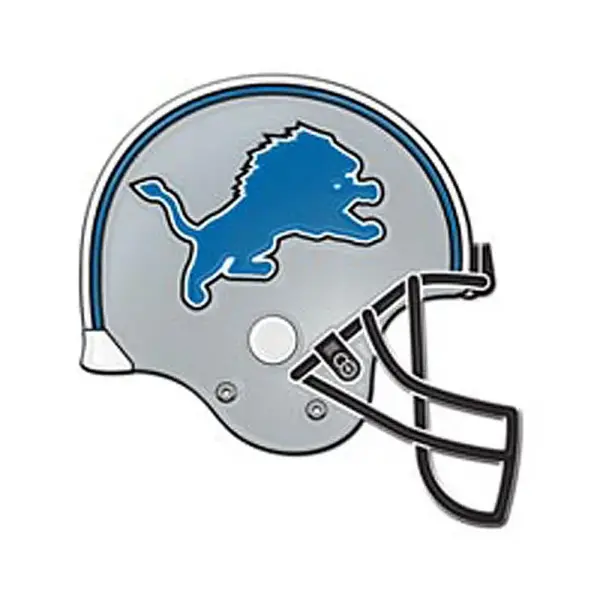The Detroit Lions, one of the oldest franchises in the National Football League, (NFL) have weathered the storms of a century-long journey through the annals of professional football. The franchise is one of the pigskin pioneers of the gridiron. The Detroit Lions’ history is a tapestry woven with both triumph and tribulation, showcasing the team’s rise and falls as a formidable pro football team in the NFL.
Contents
The Detroit Lions’ Fortuitous Origins
The origins of the Detroit Lions can be traced back to the Portsmouth Spartan. They were, an independent football history team from Ohio that joined the NFL in 1930. Facing financial difficulties, the Spartans were purchased by George A Richards in 1934. He promptly relocated the franchise to Detroit and rechristened them the Detroit Lions.
The Detroit franchise chose “Lions” as their nickname as a homage to the baseball team, the Detroit Tigers. As was customary of the day, the football team often took on the name, of the more successful baseball team. In this case, it was heavily influenced by the more successful sport in town.
The new minted Lions wasted little time in making their mark on the league. In 1932, the team played for the NFL championship. Just three years later, they emerged victorious, securing their first league title in 1935. At the helm of this early success was the legendary Dutch Clark. Besides playing quarterback, Clark was the last NFL dropkicker and a charter member of the Pro Football Hall of Fame.
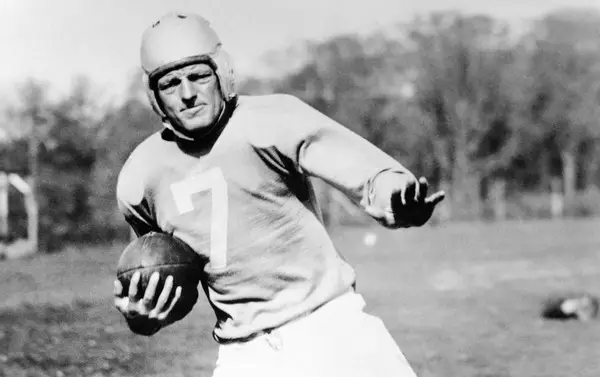
The Dominant Dynasty of the 1950s
The 1950s proved to be the golden era for the Detroit Lions. The team cemented its status as a true powerhouse NFL franchise. The Lions captured three league championships in 1952, 1953 and 1957. The roster was filled with legendary players such as Bobby Layne, running back Doak Walker, Lou Creekmur, Dick “Night Train” Lane and Joe Schmidt. Get your Detroit Lions tickets now.
The Doak Walker Phenomenon
Doak Walker, the Lions’ versatile legendary running back was a standout during the team’s championship-winning era. Walker’s college career at SMU was nothing short of extraordinary, as he was a three-time All-America halfback, winning the Maxwell Award in 1947, the Heisman Trophy in 1948 and was names Player of the Year in 1949.
During his six-season tenue with the Lions, Walker was named All-Pro twice and led the league in scoring on two occasions. His electrifying performances and all-around excellence cemented his legacy as one of the greatest running backs in NFL history. Detroit Lions ticket information.
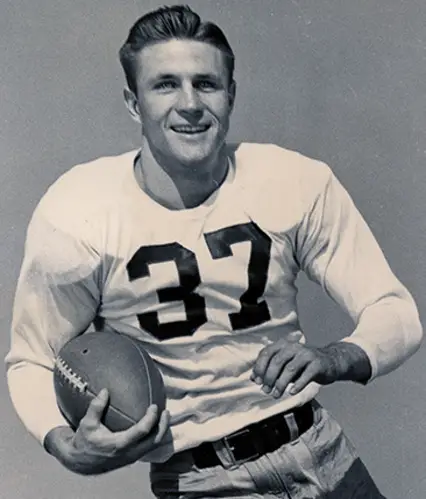
The Lean Years and a Glimmer of Hope
After the glory years of the 1950s, the Detroit Lions entered a prolonged period of futility, struggling to recapture the magic that had once made them a force to be reckoned with. They managed to reach the wild-card playoff in 1970 and 1982 but it wasn’t until 1983 that they finally won the NFC Central Division championship. See NFL Ticket Exchange: Your source for all NFL TIckets.
Despite the team’s struggles, several players stood out during this lean era, including defensive back Dick LeBeau (1959 – 1972) and defensive tackle Alex Karras (1958 – 1970), bith of whom would go on to be inducted into the Pro Football Hall of Fame.
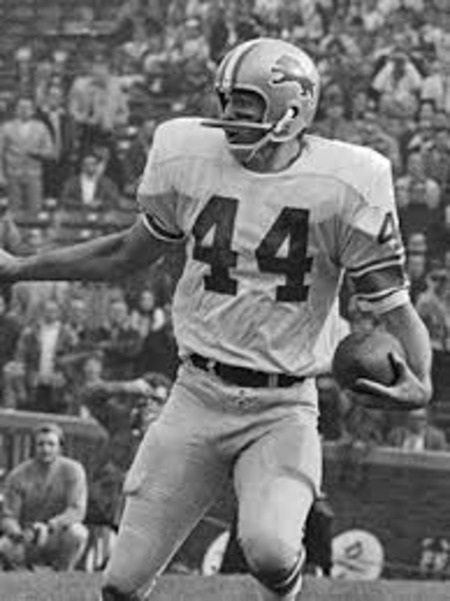
The Detroit Lions have played in several stadiums: Universal Stadium (1930- 33), University of Detroit Stadium (1934 – 1937), Briggs Stadium (1938 – 1974) Pontiac Stadium (1975 – 2001) and since 2002 Ford Field.
William Clay Ford Sr, purchased the team in 1961 and was owner until his death in 2013. He was succeeded by his wife Martha Firestone Ford, and since 2020 Sheila Ford Hamp is the owner of the team.
The Barry Sanders Era: A Fleeting Brilliance
The Detroit Lions’ fortunes took a turn for the better in the 1990s, thanks in large part to the arrival of one of the most electrifying legendary running backs in NFL history: Barry Sanders. Sanders, the team’s all-time leading rusher, helped the Lionss capture divisional titles in 1991 and 1993. In doing so, he cemented his status as one of the greatest players to ever grace the gridiron.
In 1997, Sanders enjoyed a truly remarkable season, rushing for 2,053 yards and averaged 6.1 yards per carry, He became one of only eight plyers in NFL history to surpass the 2,000 yard mark in a single season. For his career, Sanders amassed 1,5269 rushing yards, scored 109 touchdowns, and was voted to 10 Pro Bowls. He won two Offensive Player of the Year awards, and one Most Valuable Player award.
Sanders was involved with the NFL in setting a major precedent. Sanders was selected third in the 1997 draft, even though he had only completed his junior year in college. The NFL ruling at the time stated that collegiate juniors could not declare for the draft. Because Sanders’ college team, Oklahoma State had been found guilty of numerous major NCAA rule violations and placed on five years of probation, Sanders was allowed to come out for the draft. The NFL altered their policy soon after.
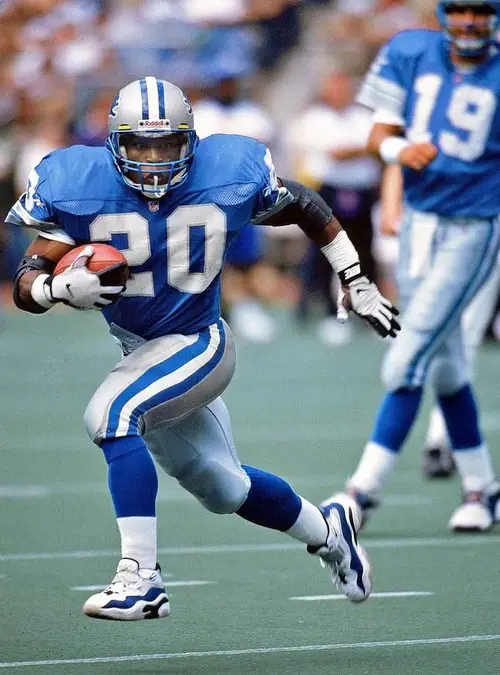
The Detroit Lions of the 21st century have continued to navigate the ups and downs of the NFL. They seek to recapture the glory of their championship team past. The team currently plays in the National Football Conference (NFC) North Division along with the Chicago Bears, Green Bay Packers and Minnesota Vikings.
Recent key players on the Lions’ roster include quarterback Jared Goff and defensive end Aidan Hutchinson. The Lions’ journey has been marked by both triumph and tribulations. Their century-long history stands as a testament to the enduring spirit of the game and the unwavering loyalty of their devoted francise.
Barry Schustermann
Follow me on X @BarrySchust
Follow me on Facebook @Barry Schustermann
